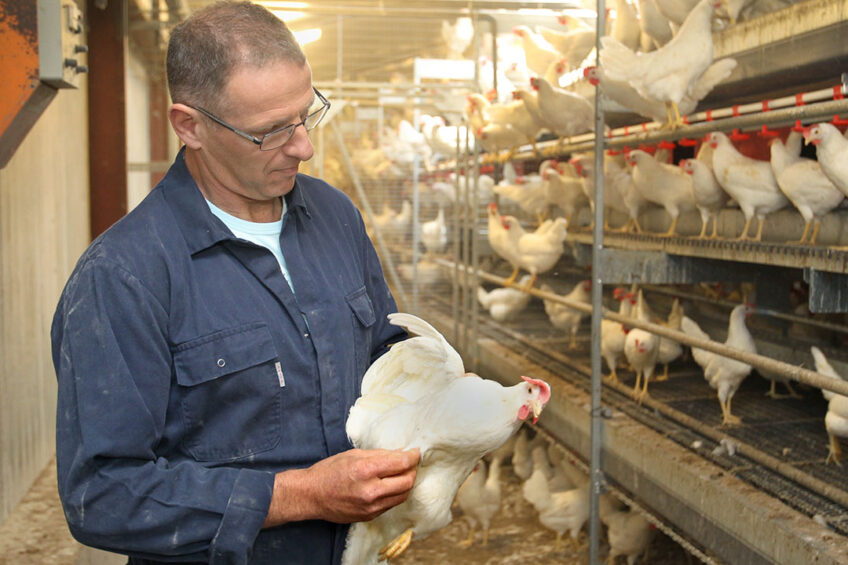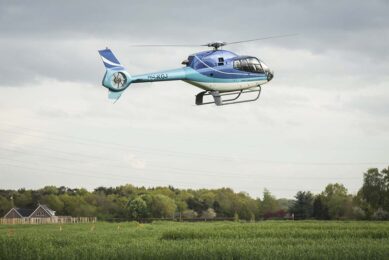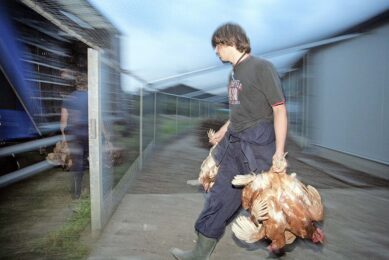Companies continuing to meet cage-free commitments

Progress against cage-free commitments is being reported from 7 out of 10 companies, according to results from the latest Compassion in World Farming EggTrack report.
The 5th annual survey found that 156 of 219 (71%) tracked companies reported progress – a rise of 8% in the past 12 months. Of the 47 firms with global commitments, 26 (55%) reported progress and an additional 12 companies have expanded their commitments to cover their entire global egg supply.
The Compassion in World Farming (CIWF) study highlights how legislation is now catching up with the industry to move to cage-free production, particularly in Europe, where the landmark decision by the European Commission to phase out cages for all farm animals by 2027 was taken in June. It followed a substantial campaign by the European Citizens Initiative, which was spearheaded by a coalition of 170 NGOs. The End of the Cage Age campaign attracted 1.4 million signatures from EU citizens, as well as winning backing from Unilever, Barilla Group, Mondelēz International and Nestlé.
Phasing out combination systems for laying hens
Confidence in consumer demand for free-range eggs has prompted leading European egg producers, such as the Eurovo group to commit not only to phase out cages for laying hens but to phase out combination systems as well. EggTrack highlights the risks of ‘combination’ and ‘limited access’ systems, which are marketed as cage-free but have doors and internal partitions to allow producers to switch back to cage production. These systems have been suppressed in the UK, where over 90% of producers subscribe to the British Lion scheme which prohibits the use of combi systems. However, the report says there is still some way to go in the US and elsewhere in the world to educate producers.
Cage-free US egg industry: sooner rather than later
The implementation of new animal welfare laws for laying hens in the US state of California will affect the entire country’s egg production. Here are the details of the regulations, implementation timeline – and lawsuits. Read more…
Momentum towards free-range systems is also growing in South America and Asia due in part to the role of global companies such as Subway, Burger King, Sodexo, Compass Group, Accor Hotels, Metro AG and Marriott International, which have made global cage-free pledges that cover Asia. In South America, the region’s largest egg producer, Mantiqueria, which has approximately 10.5 million laying hens, committed at the end of last year to halt the construction of any new caged facilities.
But, the report says there is less positive news from some of the other emerging markets, such as India, Indonesia and South Africa, while there is still some way to go for companies to move their ingredient business to cage-free.
Ingredient eggs
In this area, the UK is leading the way with Tesco, Sainsbury’s, Asda and Morrisons all now having cage-free ingredient egg commitments. Manufacturers have yet to make this step, with the report claiming companies such as Bakkavor and Dawn Foods had yet to make any commitments.
Commenting on the report, Dr Tracey Jones, global director of Food Business for CIWF, said there were many positive take-home messages in the report despite the global pandemic continuing to deliver uncertainty and obstacles. “The landmark decision by the European Commission to phase out cages for all farm animals across the continent by 2027 has set the tone for cage-free egg production across the globe and we are already witnessing a rise in global commitments as corporate cage-free sign-ups ripple to other regions,” said Jones.
Although cage-free production is rapidly becoming the baseline standards for shell eggs in Europe, there is still work to do in other parts of the supply chain, noted Jones. “All companies must now tackle head-on the issue of ingredient eggs, while those in emerging markets should be encouraged to move to cage-free production and reject combination sectors which do not offer the same welfare benefits.”
Join 31,000+ subscribers
Subscribe to our newsletter to stay updated about all the need-to-know content in the poultry sector, three times a week. Beheer
Beheer








 WP Admin
WP Admin  Bewerk bericht
Bewerk bericht